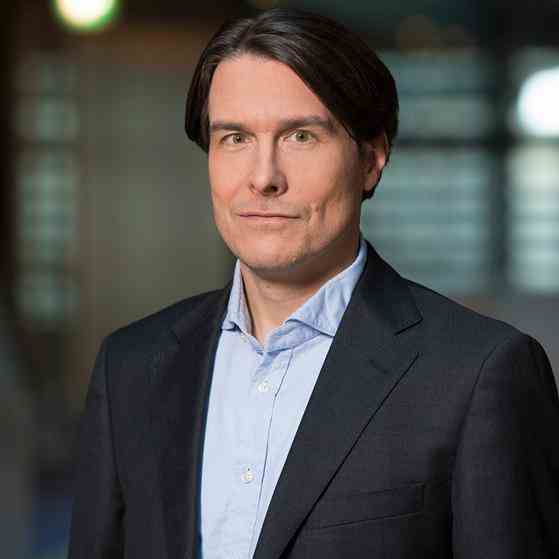analysis
Status: 03/12/2022 09:16 a.m
Baerbock’s assumption of office as foreign minister was met with skepticism. In the meantime she has certainly arrived in her diplomatic everyday life. But approval can quickly turn around again.
“I’ve only been in office for three months, but it feels like three years.” For a brief moment, Annalena Baerbock allows herself to be looked at in public. The German Foreign Minister is standing on the Idar Bridge in Mitrovica, Kosova. It’s a bridge that actually marks a border. In the north of the divided city mostly Kosovar Serbs live, in the south Kosovar Albanians. Since the Kosovo war in 1999, there have been several ethnic incidents here.
With her trip, Baerbock wants to send a signal that Germany wants to get more involved here in the Western Balkans than in previous years. The region is in the neighborhood and has been through the horrors of war. And Russia has massive strategic interests here.
Eight minutes to Scholz
In the middle of the conversation on the bridge, Baerbock gets a tip from her delegation. “Unfortunately, I have to speak to my chancellor in eight minutes.” She quickly adds that “unfortunately” can of course be deleted. Even if nothing is initially known about the phone call, one can guess that Olaf Scholz and Baerbock are talking about Ukraine. It is the theme that dominates her time in office: war and peace. In Europe. And alongside Chancellor Scholz, Baerbock is the face of German foreign policy.
Now she regularly sits on government planes, drives in a motorcade and flashes blue lights: today in Moldova, recently on her way to the United Nations in New York. This is the new everyday Baerbocks.
Emotional rollercoaster
Months lie behind her on an emotional roller coaster, which has taken her up and down in quick succession. Last year, Robert Habeck took the decisive step backwards: “Dear Annalena, please, the stage is yours.” The spotlights illuminating Baerbock on this stage of the first Green Chancellor candidacy were glaring. And brought things to light that made the Chancellery project increasingly unrealistic.
Baerbock had her own part in making mistakes: the CV had to be corrected. Corona special payments that the party executive had granted had to be repaid. A book project became a liability because of unmarked citations. Much was lost in the negative headlines, for example that Baerbock in the foreign policy trill of ARD Capital Studio and Munich Security Conference took positions that are now proving to be very correct. In contrast to Scholz and Laschet, she warned loudly about Nord Stream 2.
The ugly times have steeled them
It’s months in the wind tunnel – in the headwind tunnel. Baerbock polarized as a person right from the start. She is exposed to a constant stream of malice and hate online. An ugly time for her, but looking back, it also had a positive long-term effect. Observing Baerbock in her role as foreign minister, one gets the impression that the extreme rollercoaster ride and the barrage of criticism during the election campaign have steeled her. It can’t get much worse – not even on the world stage.
100 days grace period – that used to be the case
100 days. In other times this was the grace period granted to a new government. A grace period that Baerbock should never get. When the new minister took office, Russian troops were already deployed on the border with Ukraine.
In mid-January, the Greens politician began her most difficult journey to date: in Moscow, Sergei Lavrov, who was feared on the diplomatic stage, awaited her and had already presented established politicians such as EU foreign policy chief Josep Borrell.
Diplomatic certificate
But the German Foreign Minister did what she should do more often from now on: She spoke plainly: “It’s difficult not to understand that as a threat,” she remarked on the Russian troops, and did not omit controversial issues such as the Navalny case. Although Baerbock actually returned to Berlin empty-handed – but also with a kind of diplomatic certificate of maturity in his luggage. But even they could not prevent the Russian invasion of Ukraine.
Ukraine has been the dominant theme of her term of office so far. And yet the long-term projects and goals should not get under the wheels. The appointment of Greenpeace boss Jennifer Morgan as special representative for climate foreign policy has caused a stir.
During her current trip to the Western Balkans, she is inaugurating a wind farm in Kosovo. In Bosnia-Herzegovina, Baerbock meets young politicians. One of them, the mayor of Sarajevo, Benjamina Karic, has obviously taken a liking to her: “She’s so young and an impressive politician,” said the 30-year-old after the meeting.
Her assumption of office was met with skepticism. The constant Twitter malice continues. And yet the German Foreign Minister in the current ARD Germany trend achieved a clear plus in the satisfaction values. But Baerbock should be careful enough to know that this approval can quickly turn again.


